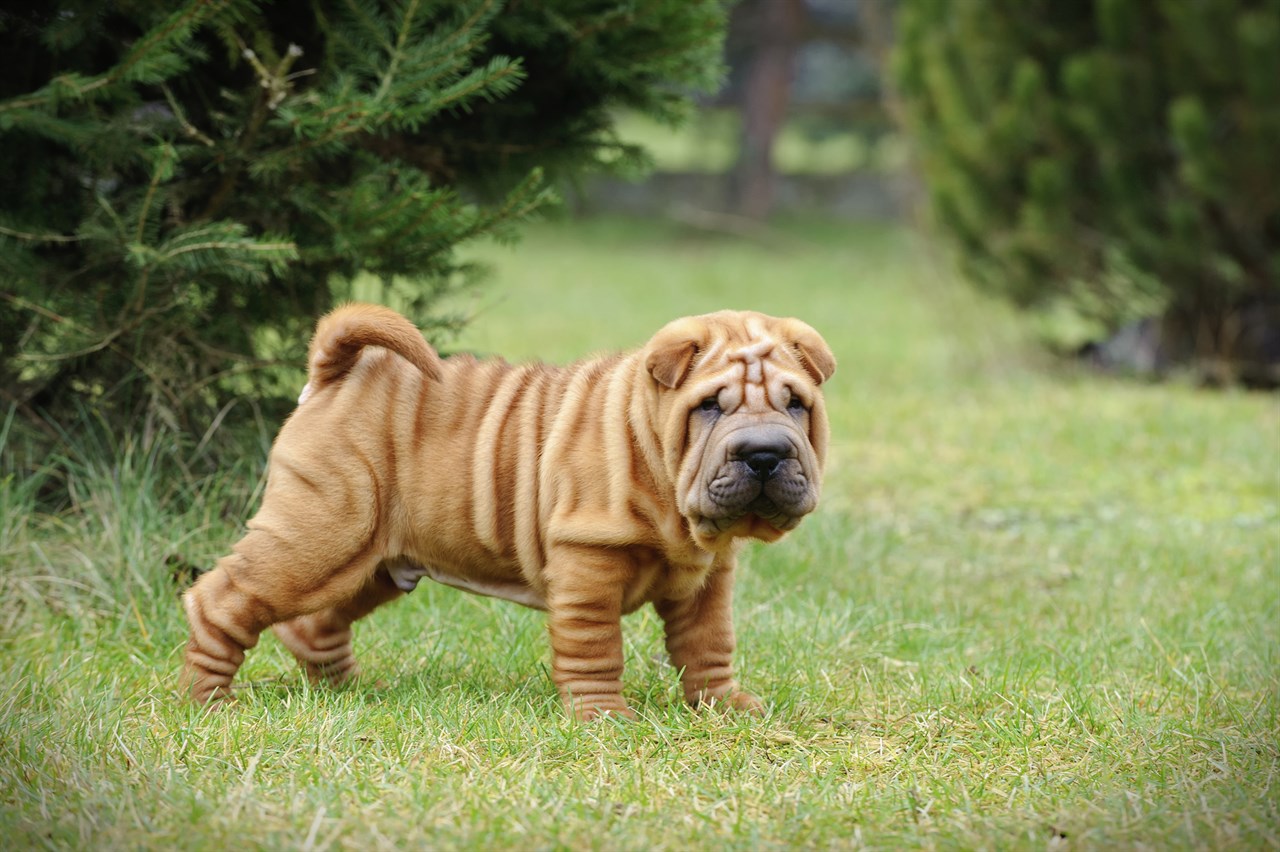Common Health Issues of the Shar Pei

Like all breeds, Shar Peis are susceptible to certain health issues. Responsible breeding practises and regular veterinary care can help mitigate the risk of these conditions. It's essential for Shar Pei owners to be aware of these potential health concerns.
Skin and Wrinkle Issues
- Pyoderma: Shar Peis are known for their wrinkles, which can trap moisture and debris, leading to skin infections.
- Demodectic Mange: This is a type of mite infestation that can affect the skin and hair follicles, leading to hair loss and skin irritation.
Hip Dysplasia
Hip dysplasia is a common joint problem in many breeds, including Shar Peis. It involves an abnormal development of the hip joint, leading to pain and mobility issues.
Entropion and Ectropion
Shar Peis are prone to eyelid abnormalities, such as entropion (inward rolling of the eyelid) and ectropion (outward rolling of the eyelid). These conditions can lead to eye irritation and discomfort.
Respiratory Issues
Some Shar Peis may have brachycephalic features, such as a short, flat face, which can lead to breathing difficulties, especially in hot weather.
Familial Shar Pei Fever (FSF)
FSF is an inherited condition that can cause fever, joint pain, and swollen hocks. It's more common in Shar Peis than in other breeds.
Hypothyroidism
Shar Peis can develop thyroid problems, leading to issues like weight gain, lethargy, and skin conditions.
Allergies
Some Shar Peis may suffer from food or environmental allergies, which can manifest as skin itching, ear infections, or digestive problems.
Cancer
As with many breeds, Shar Peis can be at risk for various types of cancer, including mast cell tumours and skin cancer.
Ear Infections
Due to their floppy ears and narrow ear canals, Shar Peis may be more prone to ear infections. Regular cleaning and monitoring are essential.
Cherry Eye
Cherry eye is a condition in which the gland of the third eyelid prolapses and becomes visible. It can cause discomfort and may require surgical correction.
Amyloidosis
Amyloidosis is a condition in which abnormal protein deposits build up in various organs, potentially leading to kidney failure.
Gastric Torsion (Bloat)
While not specific to Shar Peis, gastric torsion is a life-threatening condition in which the stomach twists, causing a blockage that can be fatal if not promptly treated.
Regular veterinary check-ups, responsible breeding practises, and a healthy lifestyle can help reduce the risk of these health issues in Shar Peis. If you're considering getting a Shar Pei, choose a reputable breeder who tests for genetic and hereditary conditions. Additionally, maintaining a healthy diet, exercise routine, and providing proper grooming and care can contribute to your Shar Pei's overall well-being.